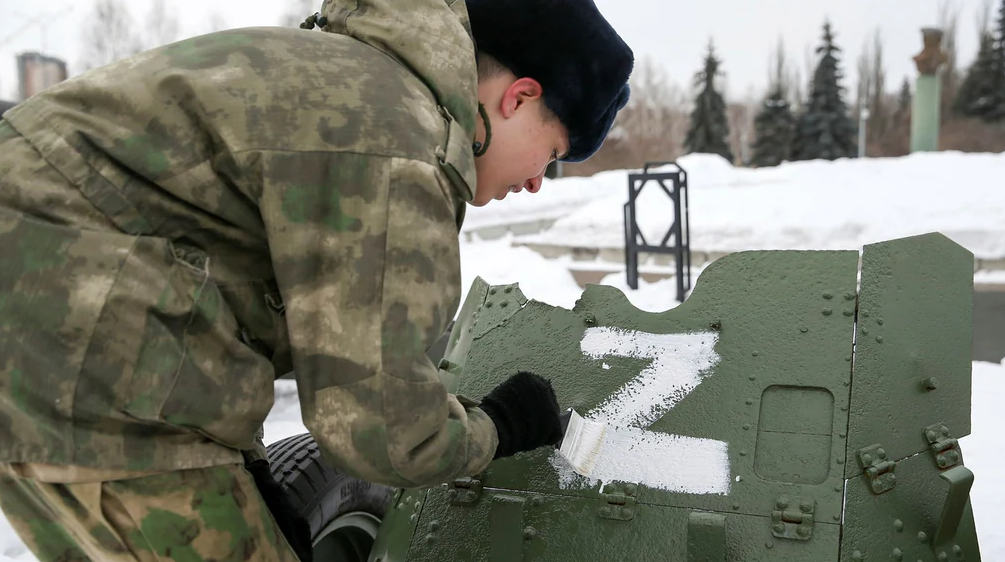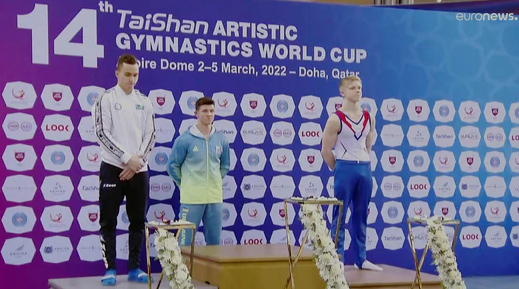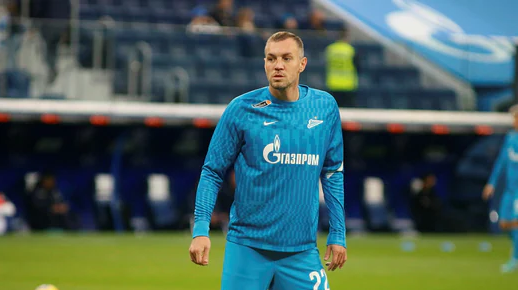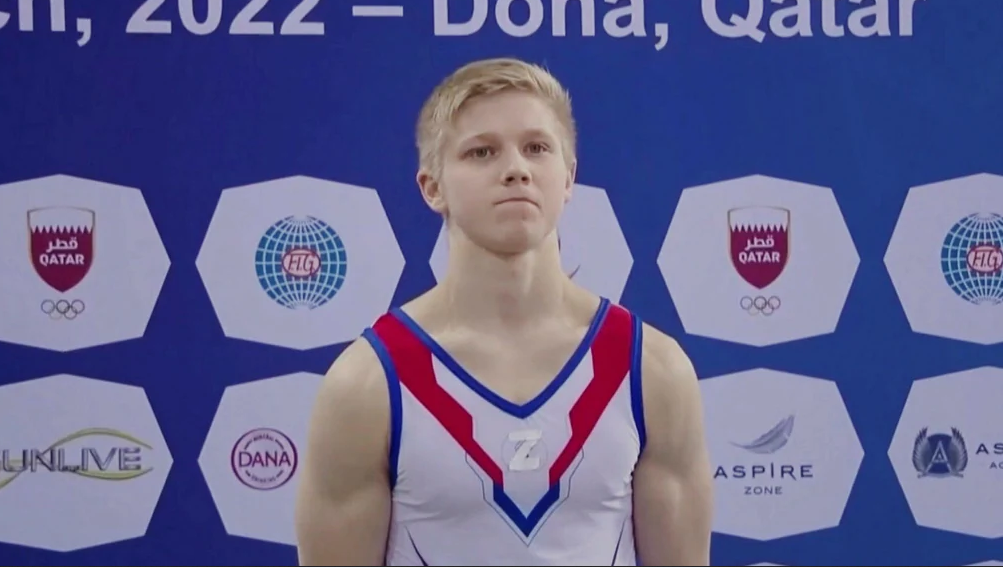Why did the gymnast have a Z on his chest?
With a Z – the letter combined with support for Russia’s invasion of Ukraine – taped to his chest, the Russian gymnast Ivan Kuliak stepped up next to the Ukrainian Illia Kovtun on the podium. The International Gymnastics Federation announced shortly after the 20-year-old could be punished for his actions.
How a letter that does not even exist in the Russian alphabet has become a symbol of Putin’s invasion is not entirely clear. But Kuliak is just one in a line of Russians who have used it.
Ukrainian Defense Minister Oleksii Reznikov compared the symbol to Nazi Germany’s swastika by posting on Twitter two intertwined Zätan.
The letter Z has become an important piece of the puzzle for Vladimir Putin’s and Russia’s invasion – which the regime itself does not call an invasion or war – in Ukraine.
Zätat is not found in the Russian Cyrillic alphabet but can now be seen on tanks, Russian politicians’ social media, the subway and in demonstrations for the invasion.

But there is no straight answer to the meaning behind it. According to some military experts, Z stands for “Zapad” which means “West”, while others say it stands for the opponent of Ukrainian President Volodymyr Zelensky.
The Russian Armed Forces writes on its Instagram that the letter comes from the word “Za”, which means “for”. For example, expressions such as “Za pobedu” – “for profit” are used in Swedish.
Zätat has now also found his way into the sports world. When 20-year-old Ivan Kuliak from Russian Obninsk finished third in needles at a World Cup competition in Doha, Qatar, he stepped up on the podium with a Z taped on his suit. Next to him was the winner Illia Kovtun from Ukraine.

The International Gymnastics Federation announced shortly afterwards that an investigation has been opened and that Kuliak may be punished for his actions.
Kuliak is also not the only Russian gymnast to express his support for Putin’s war. Multiple Olympic medalist Svetlana Chorkina last week shared a picture of a Z on her Instagram. The caption read “This is a campaign for those who are not ashamed to be Russian”.
In the Russian sports world, several people have expressed their loyalty to Russia. The skier Alexander Bolshunov posted a picture on Instagram wearing a suit from the former Soviet Union with the caption “CCCP 1980” and Vyacheslav Barkov wondered what war the reporter was referring to when he was asked in connection with a competition in a Nordic combination.
In addition, former figure skating star Yevgeny Plusenko has gone out and said he believes in Vladimir Putin .
Going against Putin may pose a security risk to Russian citizens, but there are Russian athletes who have spoken out to stop the war.
One of the latest in a series of attempts to influence Putin was led by the Russian Chess Federation. Russia is one of the world’s leading countries in the sport and the top Russian players turned directly to the president and asked for an end to the war.
However, the great player Sergei Karjakin has been suspended from several competitions after pro-Russian comments on the war. It is noteworthy that the Russian chess player was born in the Crimean peninsula and therefore played for Ukraine during his early career before moving to Moscow, long before Russia took over Crimea.

Other athletes have taken to social media to counter the invasion. For example, football player Fyodor Smolov and figure skating world champion Yevgeny Medvedeva took part in the Instagram campaign in which athletes with a black box said no to the war.
Smolov’s attacking partner in the Russian national team Artyom Dzhuba has not expressed himself in either direction. The Zenit star waited a long time, but once he expressed himself, it was with strong criticism that the sport is now being politicized.
“I did not want to, not because I’m afraid, but because I’m not an expert on politics, I’ve never been involved in it and I would never be,” Dzjuba wrote on her Instagram, continuing: “Why does everyone always say that sport is apolitical, but as soon as you get the opportunity with Russia, then this principle is completely forgotten? ”

